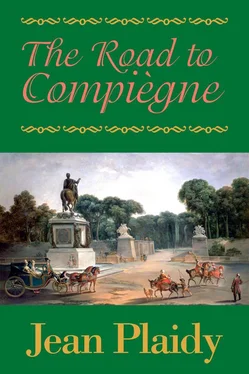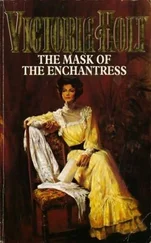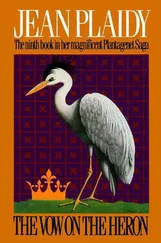CHOISEUL AND MADAME DU BARRY
The entire Court was watching the battle between the Choiseuls and Madame du Barry, and bets were made as to who would eventually win. The King was undoubtedly enamoured of his new mistress; but the Duc de Choiseul was the most brilliant statesman in France.
Choiseul was to blame for the conflict. In those first months Jeanne du Barry was ready to forget past insults and be friends. In her frank way she had not hesitated to make overtures of friendship; she had even been prepared to treat the Duc with coquetry. It was all of no avail. He had shown clearly that her beauty left him cold, that her vulgarity shocked him and that however enamoured the King became, he, Choiseul, would remain her enemy.
Jeanne eventually gave way to an expletive which was repeated around the Court. Never, it was said, had such an expression been heard in the stately rooms. What did Jeanne care! She had reached her position by being perfectly natural and she was not going to begin changing her ways now.
With the vulgarity went the kindest heart in Versailles. Jeanne found it difficult to hate anyone, and even her animosity towards the Duc de Choiseul was sporadic.
‘Oh well,’ she would in effect say to Chon, ‘I suppose he did want that sister of his to take my place. It must be a bit of a disappointment to them. You can understand how they felt about me. Poor old Choiseul! Poor old Gramont.’
‘Do not be too lenient with them,’ warned Chon. ‘Pity makes for softness and, believe me, you cannot afford to be soft with enemies as venomous as those two.’
Jeanne had already gained a reputation for generosity. She had sought out Monsieur Billard-Dumonceau, the benefactor of her childhood, and had rewarded him. Jean Baptiste was very satisfied with the way in which his affairs were going for, although he had received no appointments at Court, he had been granted several large sums of money and was able to indulge his hobby of gambling as never before; Jeanne had brought his son, Adolphe, to Court and was planning to make a grand marriage for him.
She had, it was true, decided that she would take revenge on Madame de la Garde for turning her out of her house, and called on her one day with the express purpose of doing so, but when she saw the old woman’s trepidation, she relented suddenly.
After all, thought Jeanne, I really was all that she said I was, and I ought to be grateful to her for turning me out of her house.
So instead of parading her glory before the old woman in a vaguely threatening manner as she had intended to do, she found herself promising to use her power in another direction and put honours in the way of her sons.
That was typical of Jeanne. She could never completely throw off the aura of the streets of Paris, and she loved humanity; while she could bestow pardon for past offences right and left, she found it very difficult to harbour resentment. Planning revenge seemed to her such a waste of time when there were so many more exciting things to be done.
So she went her way, ignoring her enemies until that greatest of all forced her to notice him.
‘Oh dear,’ she would groan, ‘here comes old pug-face.’ And she would turn away in a manner which was not in accordance with Versailles etiquette. She would grimace and put her tongue out at his back in a manner which might have been accepted in the Saint-Antoine district but which seemed extraordinary in the Galerie des Glaces.
Meanwhile the Choiseuls continued to have songs written about her. The Duc’s spies discovered all the details of her early life; they were exaggerated and put into songs which were sung in the streets.
Her loud laughter, her expletives, her expressions would seem to confirm the stories of her beginnings.
Card-playing was a ceremony at Versailles – until Madame du Barry came.
She would sit holding her cards, chuckling over them or cursing them, in a manner which had never before been heard within the walls of the Château .
On one occasion, when she lost to the King, she cried: ‘You’re a cheat. That’s what you are!’
The stunned silence which greeted this remark did not deter her. She continued to sit there with what her enemies called the gutter-grin on her face.
The King however merely smiled and gaily explained how he had beaten her.
‘Liar!’ she cried affectionately.
And Louis seemed to think that it was the height of bliss to hear from those vulgar but voluptuous lips that he was a cheat and a liar.
Others were less kind.
Once when she threw her cards on the table she cried in her brand of vulgar slang: ‘I am cooked!’
Choiseul, who was standing close to her, murmured: ‘You should be a better judge of that state than the rest of us, Madame.’
And Jeanne, realising the reference to her mother’s occupation, sat back in her chair and gave vent to loud laughter.
It was very difficult, thought Choiseul, to discountenance such a creature, whose very vulgarity endowed her with an unconquerable resilience.
* * *
However she discovered among her household servants a cook who bore an extraordinary likeness to Choiseul. There was the same pug-dog face, the same air of nonchalance.
‘Why,’ she said to Chon, ‘it is like having the Duc in my household, and that is something I cannot tolerate.’
She talked about the cook as her ‘Choiseul’ and compared him with the King’s Choiseul.
There came a day when she dismissed the man, and that night at one of the intimate supper parties she told the King what she had done.
‘I have dismissed my “Choiseul”,’ she cried. ‘When are you going to dismiss yours?’
All those who heard looked upon that as a direct declaration of war.
The Choiseuls retaliated by introducing to the Court a young Creole of great beauty who had recently married into their family. She had been a Mademoiselle de Raby, and it was soon realised by all that the Choiseuls intended that she should replace Jeanne du Barry.
Jeanne was a little shaken when she saw this young woman who was a statuesque beauty and perfectly groomed in the ways of Versailles.
Chon implored her to take care.
Madame de Mirepoix, whose feelings were not entirely mercenary – for it was impossible to live near Jeanne, continually reminded of her generosity, and not feel affection for her – advised her, as she had advised Madame de Pompadour in her moments of fear, that she must not panic but fight.
‘Then, dear Comtesse,’ she said, ‘you have nothing to be afraid of. If I myself am sad it is not because I think the Choiseuls will succeed in this plot but because of the alarm they are causing you.’
Jeanne, in her forthright way, went to the King and asked: ‘What do you think of this Creole, Lafrance?’
Because it was a habit of his to apply nicknames to those about him, she had retaliated by giving him one: Lafrance. It suited him, she said; and he was not averse to accepting it from her lips.
‘Do I see anxiety in your beautiful eyes?’ asked the King with a laugh.
‘Do I see lust for the Creole in yours?’ she demanded.
‘If you did,’ said Louis, ‘which you do not, it would not mean that I should wish you to leave me.’
Jeanne smiled. ‘No, of course it would not. I would not want you to feel that I should whimper if you wanted a change now and then. As long as you come back to me, of course.’
He smiled at her. ‘You would have to find me someone to compare – just a little – with yourself, before I should feel tempted. As for this woman, I cannot think of her without thinking at the same time of the Duchesse de Gramont. Never would I allow that woman to have any say in my affairs.’
Jeanne was contented. She knew, before the Choiseuls realised this, that the affair of the Creole was going to be a failure.
Читать дальше








